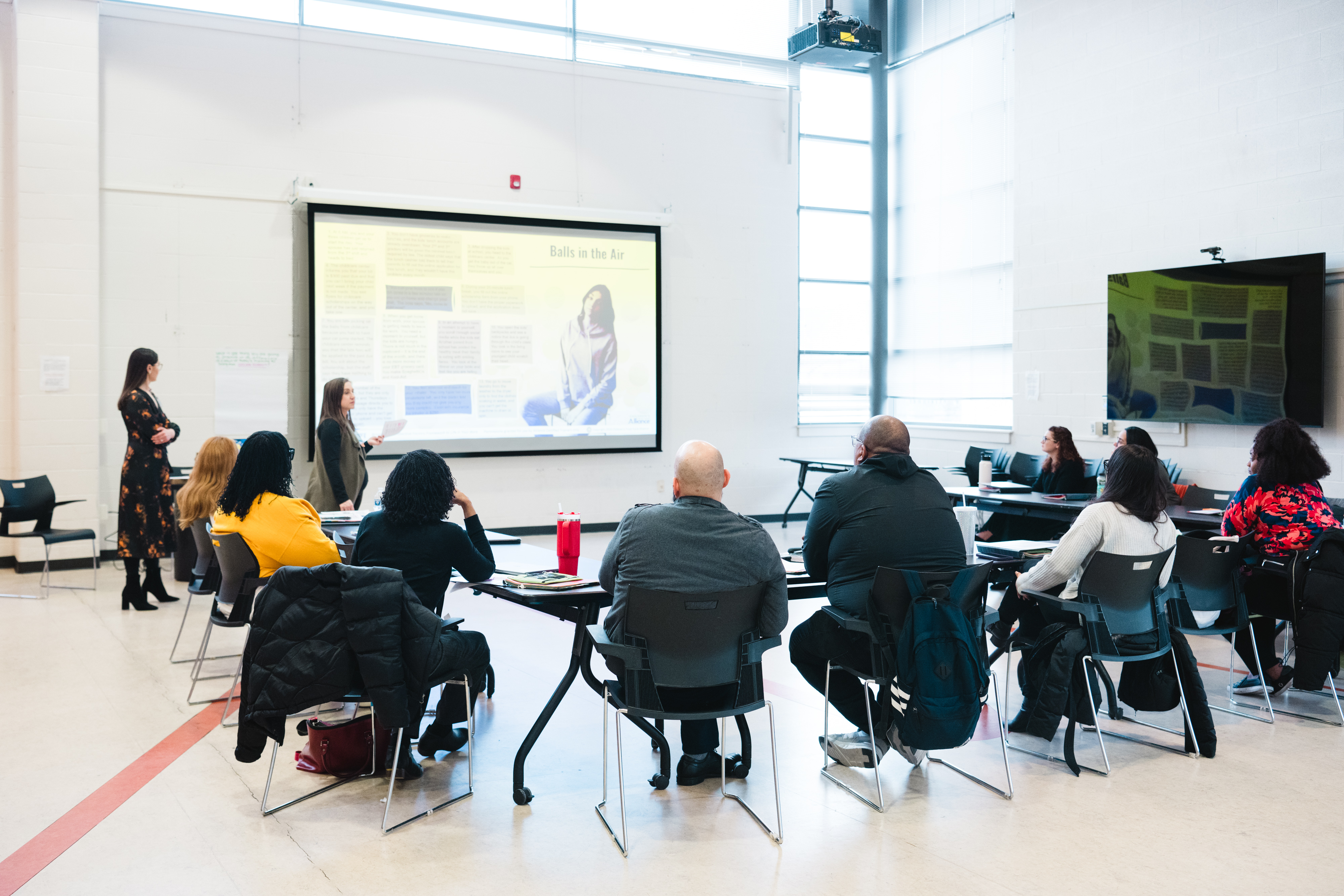At Connecticut Children’s Childhood Prosperity Lab, we believe improving child, youth, and family health requires a comprehensive approach. Recently, I was reminded just how critical this approach is in our ongoing work. Childhood Prosperity Lab, a program of the Office for Community Child Health (OCCH), is currently leading a Strengthening Families Protective Factors Framework Community of Practice in partnership with North Hartford Ascend. This week, we facilitated the Social and Emotional Competence of Children training module, one of seven core sessions in the series.
In this session, we highlighted an essential truth: supporting optimal child health is a two-pronged approach—working with both children and parents. The importance of this is reflected in models like Urie Bronfenbrenner’s Ecological Systems Theory and the Harvard University Center for the Developing Child’s Place Matters framework, which broaden the focus to include the various environments—social, built, natural—and systemic influences that shape a child’s well-being. These models recognize that child health and development are interconnected with the health of their caregivers and the environments in which families live.
As we’ve learned, partnering with caregivers and prioritizing their support is one of the most effective ways to foster child well-being. However, this vital need is increasingly unmet. In 2024, U.S. Surgeon General Vivek Murthy released an advisory on the mental health and well-being of parents. His forward stresses, “We know that the well-being of parents and caregivers is directly linked to the well-being of their children. The stresses parents and caregivers have today are being passed to children in direct and indirect ways, impacting families and communities across America. Yet in modern society, parenting is often portrayed as a less important, less valued pursuit. Nothing could be further from the truth.”
The data from the Surgeon General's advisory highlights the urgency:
- 41% of parents report being so stressed on most days that they cannot function.
- One in four parents say there have been times in the past year when they couldn’t meet basic needs like food or housing.
- In 2021, 65% of parents and guardians, and 77% of single parents, experienced loneliness, which is as harmful to health as smoking 15 cigarettes per day.
Caregivers face multiple stressors: financial instability, lack of time for themselves, concerns over their children's health and safety, the challenge of managing technology use, and insufficient sleep. These burdens are compounded by inflation and increasing work hours.
The conclusion is clear: to care for children, we must also care for the adults in their lives.
To more intentionally partner with caregivers and disseminate best practices across the Ascend network of providers who work directly with them, OCCH embraced the Strengthening Families Protective Factors Framework (Framework), developed by the Center for the Study of Social Policy. The Framework is research-informed and strength-based, helping all families to identify and build on their own unique protective factors. Protective factors are the environmental conditions or personal attributes that make a caregiver, child, or family more likely to thrive and less likely to experience a negative outcome.
Here are concrete ways providers can support caregivers and strengthen protective factors, using the five key areas of the Framework:
- Parental Resilience: Notice moments of resilience in real time and reflect your observations back to the caregiver, such as the progress they might have made on working towards a personal goal.
- Social Connections: With warmth, take the time to inquire about the caregiver’s support system and who they might call to support them through their specific needs, goals, or priorities.
- Knowledge of Parenting and Child Development: Ask open-ended questions of the caregiver so that they have space to share what they know and prioritize about their child’s development. For example, depending on your role, you might say something like “I’d love to learn more about how your child is playing at home. What are a few of their favorite activities?”
- Concrete Support in Times of Need: Asking for help has individual and cultural implications. Consider practicing the “Ask, Offer, Ask” technique from motivational interviewing, which serves as a formula for providing support. The technique encourages providers to first ask for the caregiver's perspective, offer information and support as appropriate, and then ask the caregiver what they think about that next step.
- Social and Emotional Competence of Children: Depending on your role and relationship with the caregiver/s, ask them how they are doing and create space for meaningful conversation regardless of how they respond. This practice requires a commitment to supporting caregivers even when they share that they might not be doing well, and offering to connect them to the appropriate resources available for referral and linkage.
Interested in learning more about how you can integrate the Strengthening Families Protective Factors framework into your work with children and families? Reach out to the Childhood Prosperity Lab at childhoodprosperitylab [at] connecticutchildrens.org.

